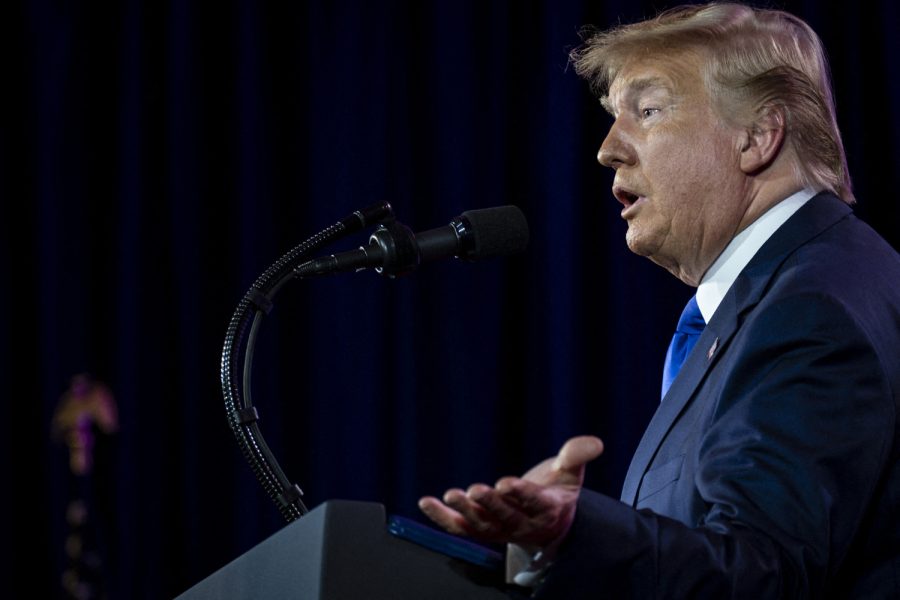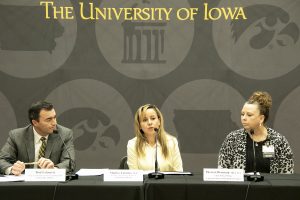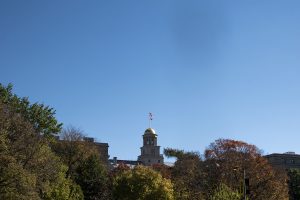President Trump calls for 30-day travel ban, economic relief
In an address from the White House Wednesday evening, President Donald Trump announced a number of measures in an effort to squelch the spread of COVID-19.
U.S. President Donald J. Trump delivers remarks at the Values Voter Summit at the Omni Shoreham Hotel on Saturday, Oct. 12, 2019 in Washington, D.C.
March 11, 2020
In a rare address from the Oval Office Wednesday evening, President Donald Trump announced a 30-day suspension on foreign visitors from most European countries to the United States in an effort to stop the spread of COVID-19.
President Trump’s approximately 10-minute address said the travel suspension stems from travelers from Europe who “seeded” the United States – U.S. residents, however, are not affected by the ban. Not included on the list of restricted countries, however, is the United Kingdom, which has over 400 cases as of Wednesday evening.
“We made a life-saving move with early action on China, now we must take the same action with Europe,” Trump said during the address, referring to his decision to restrict travel from China in February. “Smart action today will prevent the spread of the virus tomorrow.”
Iowa’s cases of the virus total 14 as of Wednesday, with 13 in Johnson County, home to the University of Iowa.
In addition to the travel ban, Trump also discussed “emergency action” he will soon take to provide a financial bulwark to business owners and individuals whose operations have been impacted by the virus, adding that the Small Business Administration will provide $50 billion in emergency capital to such businesses.
“This is not a financial crisis, this is just a temporary moment of time that we will overcome as a nation and as a world,” Trump said. “ … Our banks and financial institutions are fully capitalized and incredibly strong.”
In a press conference Sunday, Iowa Gov. Kim Reynolds urged workers to stay home if they experienced flu-like symptoms. When asked what Iowans should do if that’s not economically feasible, she emphasized that health should come first.
“Well, they just need to stay home,” she said. “And that’s what we need to say. I think businesses are aware that in order to contain this as much as we can, Dr. Pedati has outlined a process that is standard and Iowans should try and follow.”
The President’s address, in part, was sparked by testimony made earlier in the day by Anthony Fauci, a member of Trump’s coronavirus task force and director of the National Institute of Allergy and Infectious Diseases. Fauci cautioned that the situation will get “worse and worse and worse.” Hours later, COVID-19 was declared a global pandemic by the World Health Organization.
The nation’s colleges and universities have been weighing in on the potential impact the virus could have on higher education; as of late Wednesday afternoon, over 100 institutions have suspended in-person learning.
Amongst the slew of suspensions is the University of Iowa, which announced the suspension of in-person classes for at least two weeks after Spring Break.
Meanwhile, in Europe, Italy has been the most adversely impacted by the virus; over 10,000 cases have been reported so far as the country urged all businesses except grocery stores and pharmacies to shut down.
American investors were seemingly unimpressed by President Trump’s address; seeking more robust economic measures as U.S. cases rise, Dow Jones futures dropped nearly 1,000 points directly following the Oval Office message – the past week has seen the worst stock market crash since 2008.
What questions do you have about the coronavirus outbreak? Let us know by filling out this form.
Follow the DI’s latest coverage of COVID-19 updates here.
View the DI’s interactive map: How are other colleges dealing with the coronavirus?






